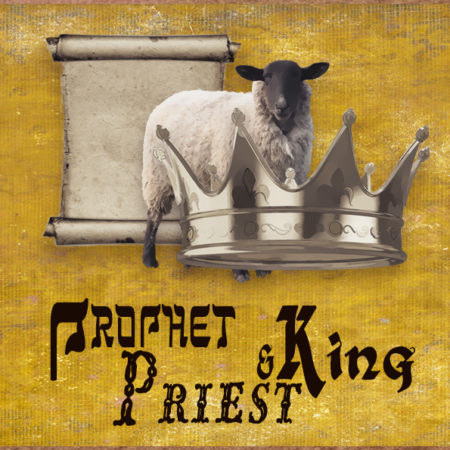In His incarnation, Christ came into our world in fulfillment of the OT hopes that God would raise up a prophet like Moses, a King like David, and better priest than the Levites who had to offer sacrifices on their own behalf before they could intercede for others. In His Temptation, Jesus demonstrated that He was the King who could face the enemy of God’s people, triumphing over him by accurately and authoritatively proclaiming the Word of the Lord as a good prophet and guarding the holiness of the temple (His body) as a good priest by obeying the Word of the Lord. The rest of Jesus’ earthly ministry further confirmed His identity as the Messiah who had come in fulfillment of the promises of the OT.
As Jesus began the last season of His ministry, He and hundreds of other Jewish pilgrims made their way to Jerusalem in order to celebrate the Passover. As the final week of Jesus’ earthly life began, three key events once again demonstrated Christ’s prophetic, priestly, and kingly qualifications.
Luke 19:28-40 tells us that on the first day of the Passion Week Jesus came with His followers from Bethany to Jerusalem. As word spread of His coming, pilgrims from the surrounding towns gathered along the road and hailed Him as the promised Messiah. As the people placed their cloaks on the road and waved palm branches, they quoted from Ps. 118 which was recognized at the time as Messianic. In contrast to his followers’ elation, the Pharisees were infuriated and demanded that He rebuke His disciples. Jesus responded to them by stating. “…if these were silent, the very stones would cry out.” This allusion to Isa. 55:12 describes the mountains as breaking out in singing in response to the Word of the Lord. In doing this, Jesus acknowledged His kingship by equating Himself with the fulfillment of God’s Word.
As He approached the city, Luke 19:41-44 relates for us Jesus’ weeping over Jerusalem. This incident conveys once again the prophetic ministry of Christ. In contrast to the joy of the people because of the majesty and grandeur of the city, Jesus wept over what knew was to come. Although Jesus had come to them as their King, their rejection of Him meant that destruction was to come upon the city. As Jesus lamented the city, He recalled that the things which made for peace had been “hidden from their eyes.” This phrase seems to allude to Isa. 6:9-10 which Jesus had quoted towards the beginning of His ministry. The goal of this was to align himself with Isaiah’s prophetic ministry of God’s Word which would provoke a response from the people who would either accept or reject it. Because the people had not known the time of their visitation, they would suffer coming judgment at the hands of the Romans.
Finally, Luke 19:45-58 conveys to us Jesus’ cleansing of the temple. It was the duty of the priests to guard the temple’s holiness, but upon entering its gates, Jesus became enraged. While the inner court where the Jews could gather for worship was no doubt kept pure, the outer court where the gentiles were to worship was filled with money changers and those selling animals for sacrifices. As he drove them out of this part of the temple he quoted from Isa. 56:7 where it is said that God’s house was to be “a house of prayer for all nations.” The Jews had misunderstood the function of the temple and had defiled it by not seeing it as a place where the gentiles could worship. Christ, as the Messiah, demonstrated that the Levitical priests themselves needed someone to truly cleanse the temple where they had failed to do so.
Join with us this Sunday as we continue to worship Jesus as Prophet, Priest, and King together!
Soli Deo Gloria,
-Thomas

